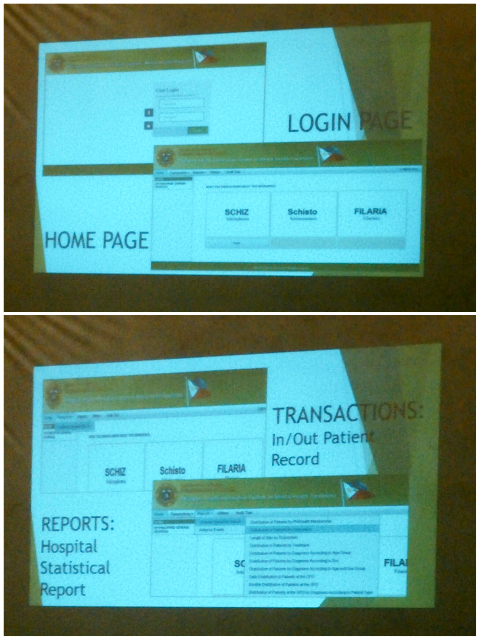Filtered By: Lifestyle
Lifestyle
PHL’s first mental health information system rolled out
By ROSE-AN JESSICA DIOQUINO, GMA News
The first integrated information system on mental health conditions in the Philippines is set to be implemented in a number of public and private hospitals around the country.
The Philippine Health Information System on Mental Health Conditions (PHIS-MH) will hold a database of information on mental health cases, primarily schizophrenia, which can be accessed by hospitals even offline.
The software includes functions such as in/out patient records and hospital statistical reports, the preview during the project's announcement on Tuesday showed.

Philippine Health Information System on Mental Health Conditions (PHIS-MH) will hold a database of information on mental health cases. It can be accessed even offline, for hospitals without a steady internet connection.
Full access to a patient's records will still remain between him and his doctor, they added, with the more detailed information bar-coded for other purposes.
The system will be piloted in 10 government and four private hospitals in eight regions of the country, most of which are involved in its development and testing. Among them are the:
- Philippine General Hospital,
- Southern Philippines Medical Center,
- University of Santo Tomas Hospital,
- Mariveles Mental Hospital,
- Vicente Sotto Memorial Medical Center,
- Bicol Regional Hospital,
- Baguio General Hospital and Medical Center,
- Cavite Center for Mental Health,
- Veterans Memorial Medical Center,
- Western Visayas Medical Center, and
- Metro Psych Facility.
The project will run an initial nine months and will eventually be turned over to the Department of Health (DOH), which in turns plans to expand the project to include public health data and data from its existing medicine access program.
"Definitely it has an expansion opportunity to cover the entire mental health program in the country," said Dr. Criselda Abesamis, director for Special Concerns Technical Cluster of the DOH."With the expansion of the project, that's how forward-looking we are, that we're proposing for it to cover our public health data."
Tuesday's launching likewise saw a signing of agreement among various stakeholders, from both public and private institutions, including DOH and the Philippine Psychiatric Association (PPA).
The system was developed through a grant from the Janssen Pharmaceutical Companies of Johnson and Johnson Philippines.
Data for better policy-making, services
According to project head Prof. Maria Lourdes Amarillo, those who worked on the system hope that it will help shape policies and provide a better understanding of the state of mental health and mental health care in the country.

Representatives from various sectors involved in the making of the system, including the Department of Health and the Philippine Psychiatric Association, during the signing of the memorandum of agreement for the project.
For her part, Dr. Dina Nadera of the PPA said that there "should be an increase" in the number of mental health problems, but it is difficult to determine given the lack of information.
"If services are not available, therefore you do not expect anything. And the reason why services are not available is because we do not have a good estimate of the magnitude of the problem," said Nadera. "Statistically, there should be an increase [of cases of mental health problems] all over the world, but unfortunately we cannot document that because services are skewed, it's difficult to generate data from the service providers."
There might be more cases that those noted, she added, because other health problems like cancer can also trigger depression.
Available data
Mental health is considered by the World Health Organization "an integral part of health." However, there is no solid data as far as the scope of problems about it are concerned.
Available data from the WHO, however, show that schizophrenia—the initial primary condition included in the PHIS-MH because it is "most burdening"—affects about 24 million people worldwide.
Though treatable, more than half of them "are not receiving apppropriate care," said the WHO, and 90 percent with "untreated" schizophrenia are in developing countries.
In the Philippines, the latest known data on mental health illnesses dates back in 2000.
Survey results from the National Statistics Office (NSO) showed that the prevalence rate of mental disorders in the country at the time was 88 cases for every 100,000 individuals.
The census that year, meanwhile, showed that mental illness was the third leading case for persons with disabilities (PWDs).
Of the 942,098 PWDs in the country, 7.14 percent were categorized as suffering from "Mental Illness." In the National Capital Region, it was recorded as the second top category for PWDs, with some 13,584 persons tallied under it. — BM, GMA News
Tags: mentalhealth
More Videos
Most Popular



